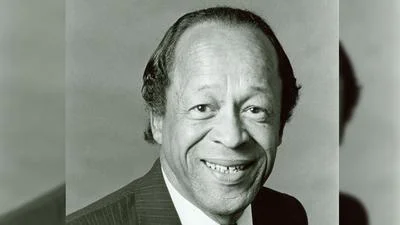Cook County Circuit Court Chief Judge Timothy C. Evans | cookcountycourt.org
Cook County Circuit Court Chief Judge Timothy C. Evans | cookcountycourt.org
Michele Smith, former 43rd Ward alderman, is pushing back against Cook County Circuit Court Chief Judge Timothy Evans, whom she says is responsible for letting criminals out onto the street.
The 79-year-old Evans runs Cook County’s Circuit Court. Smith noted that during his time as the chief judge, crime has gotten out of control due to leniency for criminals. She also pointed to statistics showing the court underreported the number of people allegedly murdered by those on court release.
“The vast majority of the judges up for retention sit in the courts,” Smith said in an email detailing her voting recommendations for the Nov. 8 ballot. “They decide lawsuits, probate estates, and work in areas like housing and evictions.
“This election, however, the voters must consider the retention of a judge who has a unique policy-making role in the criminal justice system – Chief Judge of Circuit Court, Judge Evans. In particular, in 2017, Chief Judge Evans issued his Order 18.8, significantly changing the way pre-trial bond is determined in Cook County.
“We are all aware of the controversy over pre-trial detention. However, underlying all of this controversy is a lack of transparent and accurate data.
“In Chicago, the city’s data portal has a record of every crime reported to the police since 2001. It can be searched by ward, date and type of crime. While not perfect, it provides an ability to understand reported crime in our neighborhood.
“Cook County has no easily publicly accessible, searchable database for its criminal justice system. It’s almost impossible for the media (much less the public) to actually track the progress of criminal cases through the system.
“The decision to NOT have this data for criminal cases falls squarely on the Chief Judge and the County Clerk. Good government organizations such as the Civic Federation and reform groups like Chicago Appleseed have been calling for more transparency in the data processes of the criminal courts since at least 2017.
“The impact of this lack of data is significant because the Court’s data has been found unreliable. In May 2019 the Circuit Court published a study of the first 18 months of implementation of the new bail bond rules. The county claimed that rates of re-offending (meaning an arrest) were the same 18 months after implementation of the new rules. No underlying data was made available.
“The Chicago Tribune published a report in 2020 after a hand analysis of case files of all murders committed after the report was issued. That analysis found that instead of three murders committed by offenders who were out on bail there were twenty-one.
“The Court's analysis of its data is also misleading. In its report, the court stated that after being released on bond, the same percentage of people were not rearrested, 82.2% before and 83.1% after - and claimed that crime by people out on bond had not increased.
“However, straightforward math shows that the number of crimes increased after the bail bond rules changed. In the first 18 months of the new system, 4164 new crimes were committed by felony defendants out on bond compared to 3712 in the 18 months before the new system, a total of 452 new crimes – 8 more a week of the most violent crimes in our city.
“More shocking is that the court’s calculations on violent crimes committed by released defendants do NOT include crimes such as domestic battery, assault, assault with a deadly weapon, battery, armed violence and reckless homicide.
“As of June 30, 2022, the Court states that 83,206 adult felony defendants have been released under the new order, and at least 15,060 of those arrested and released on bond under the new system were arrested for new crimes.
“No comparative analysis is available to calculate how many of those would have been released under the old system. The Court continues to release quarterly or monthly dashboards with the same unsubstantiated data.
“There are many more questions about this data, such as the impact of the dramatic increase in the number of defendants on electronic monitoring, the re-arrest records of misdemeanor defendants and the large number of crimes committed for which there are no arrests. There is no analysis at all about juvenile defendants, only adults.
“The person responsible for the issuance of Order 18.8 and the person responsible for the courts, Chief Judge Evans, has not made the data available for unbiased study.
“I therefore recommend a NO vote to retain Chief Judge Evans (#218) despite his other accomplishments over his long career.”
Politico reported on Evans' role in the crime problems in a piece titled “A chief judge’s crime problem.” In it, reporter Shia Kapos noted that Evans is heavily politically connected, having been a judge since 1992.
“Evans has defended his policy, saying 95 percent of defendants freed on bond during the past four years were not charged with new violent crimes,” she said in the report. “But judges are grumbling about the policy, nonetheless, according to two sources in the judicial system. There’s a constant worry that suspects will commit new crimes.
“Evans has made key judicial appointments, maybe knowing that those folks in turn will vote for him in September.”
The judge's Ballotpedia profile reported that “Evans earned a B.S. degree in zoology from the University of Illinois at Urbana-Champaign in 1965. He went on to receive his J.D. from the John Marshall School of Law in 1969.”
Evans formerly served as alderman for Chicago’s 4th Ward and floor leader for Chicago Mayor Harold Washington. Before that, he was assistant counsel for the City of Chicago.
Although under consideration for losing his spot as chief judge, Evans was able to rally support for an 8th term in the position that gives him broad oversight of hundreds of millions of dollars in spending.
“Evans also oversees a $296 million budget and more than 2,600 employees in non-judicial offices of the courts, including probation officers, court interpreters, and the Juvenile Temporary Detention Center,” InjusticeWatch reported. Additionally, he oversaw the appointment of Judge Raul Vega, who left the court with his reputation in tatters after being accused of harassing women from the bench in the domestic court he presided over.
Amid the scandal, earlier this year Evans quietly announced Vega’s retirement after 20 years.






 Alerts Sign-up
Alerts Sign-up